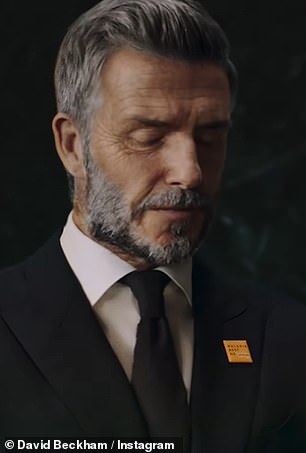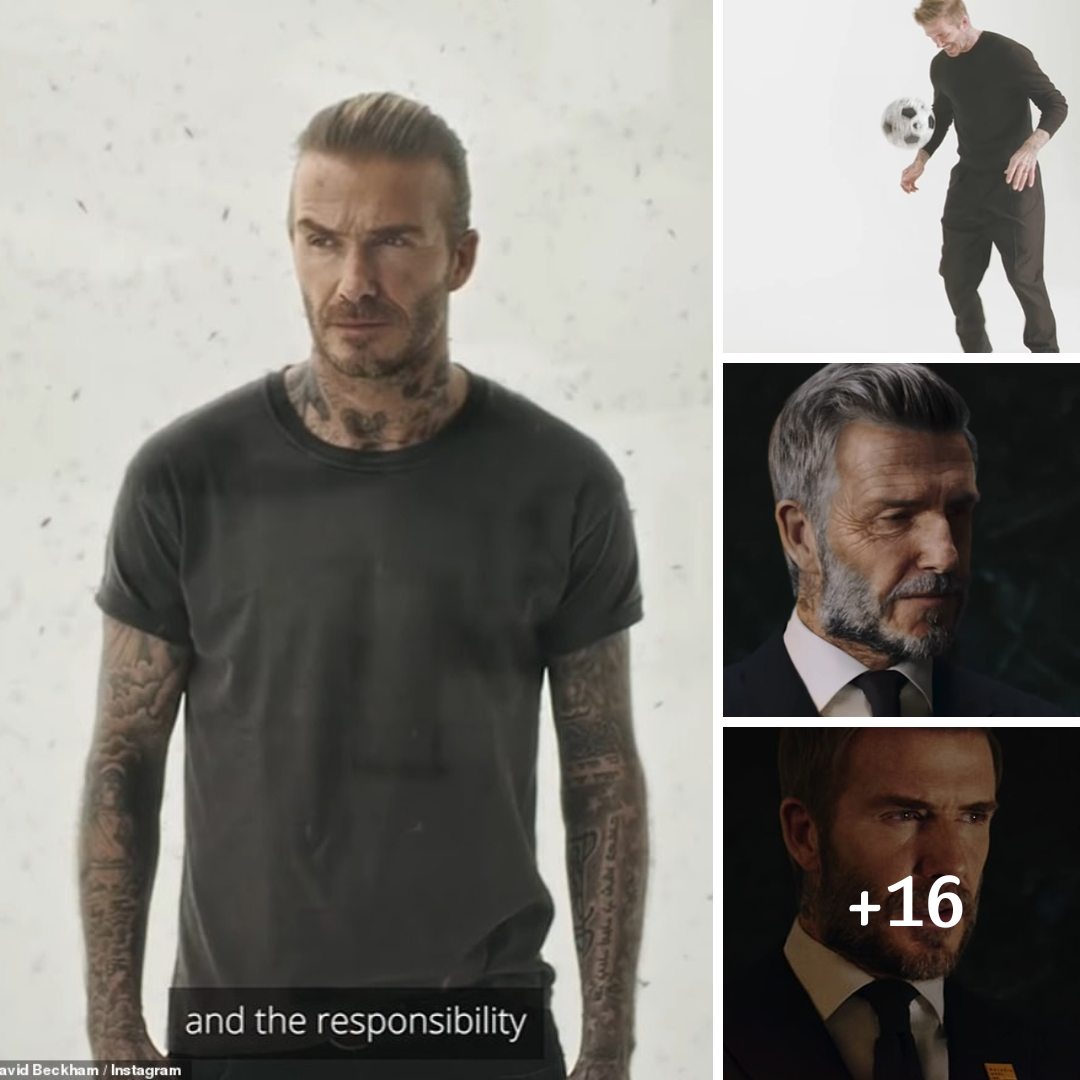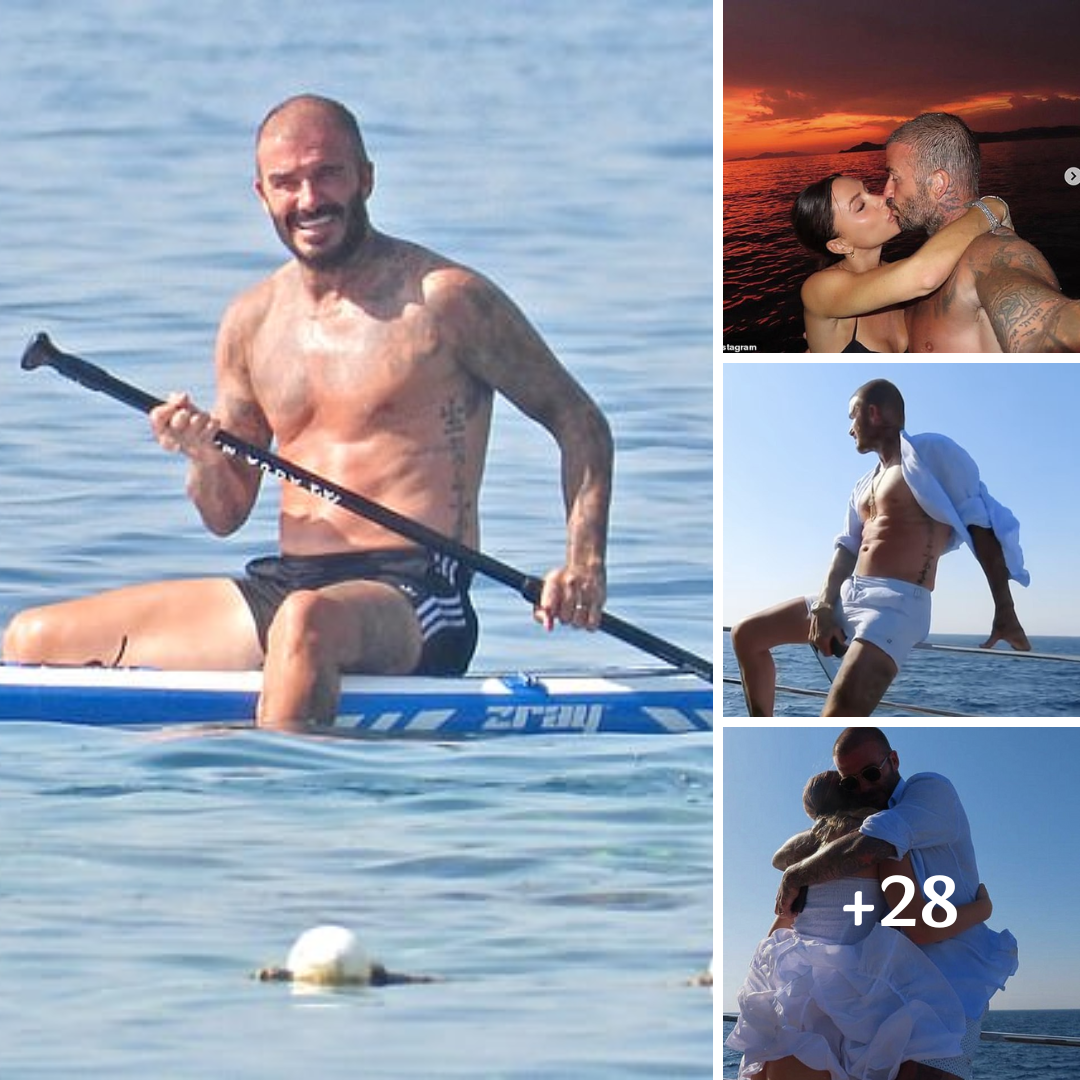David Beckham shows off his ageing self with greying hair and wrinkles
David Beckham, 47, is revealed as an old man with grey hair and wrinkles as former footballer marks World Malaria Day with a roundup of his charity work
David Beckham was shown as an old man in a video for malaria which highlights how the deathly disease can rob people the chance to grow old.
The former footballer, 47, sported grey hair, a light beard and wrinkles for the video which ran alongside the words, ‘malaria, we won’t let you take our future.’
The sportsman was then transformed into how he looks today.
The athlete spoke to scientists as he told viewers that, ‘people have to sit up and take notice’ of the disease.
He said: ‘There is a way of curing this disease. World leaders have the power and responsibility to make change. Malaria you’ve met your match.’

He swapped into a black crew neck jumper which he teamed with a pair of black trousers while holding a clip board in another video.
The ex England footballer was all smiles as he showed off his ball skills in the studio, telling viewers ‘we can’t give up’.
David then stood against a white background while being surrounded by hundreds of ‘mosquitoes’.
According to the NHS: ‘Malaria is caused by being bitten by an infected mosquito. It can take just one bite to get it’.
The disease kills over 600,000 each year, most of them children in Africa.
David showcased his tattooed arms in a grey short sleeved T-shirt and slicked his long brunette locks back out of his face.
He penned: ‘Malaria, you’ve met your match. I’m proud to be a part of the @zeromalaria movement to end this disease in a generation.
‘This is a fight we can win – we must invest in the science, innovation and tools to reach zero malaria in our lifetimes and save millions of lives.. #WorldMalariaDay #ZeroMalaria @malarianomoreuk’.




Malaria is found in tropical regions such as large areas of Africa and Asia, Central and South America, Dominican Republic and Haiti, parts of the Middle East, and some Pacific islands.
It is caused after an individual is bitten by an infected mosquito and cannot be passed on from person to person.
There are several symptoms for the disease and they would usually appear between 7 and 18 days after a person has been bitten. Malaria can be treated with antimalarial medicines.
Earlier this month, a game-changing malaria vaccine was approved in Ghana but no other country has yet to join in rolling out the jab.
Leading experts claim the decision is a ‘significant milestone’ in the decades-long race to beat the deadly illness.


Currently, other African nations are understood to be assessing the data closely because they ‘don’t want to be last in the queue’.
Efforts to find a vaccine have been painfully slow, with the parasite’s complicated structure and lifecycle having stumped scientists.
The new vaccine was created by researchers at the same Oxford University centre where AstraZeneca’s Covid jab was developed.
Ghana has approved it for kids aged 5-36 months, who are most vulnerable to the illness.






